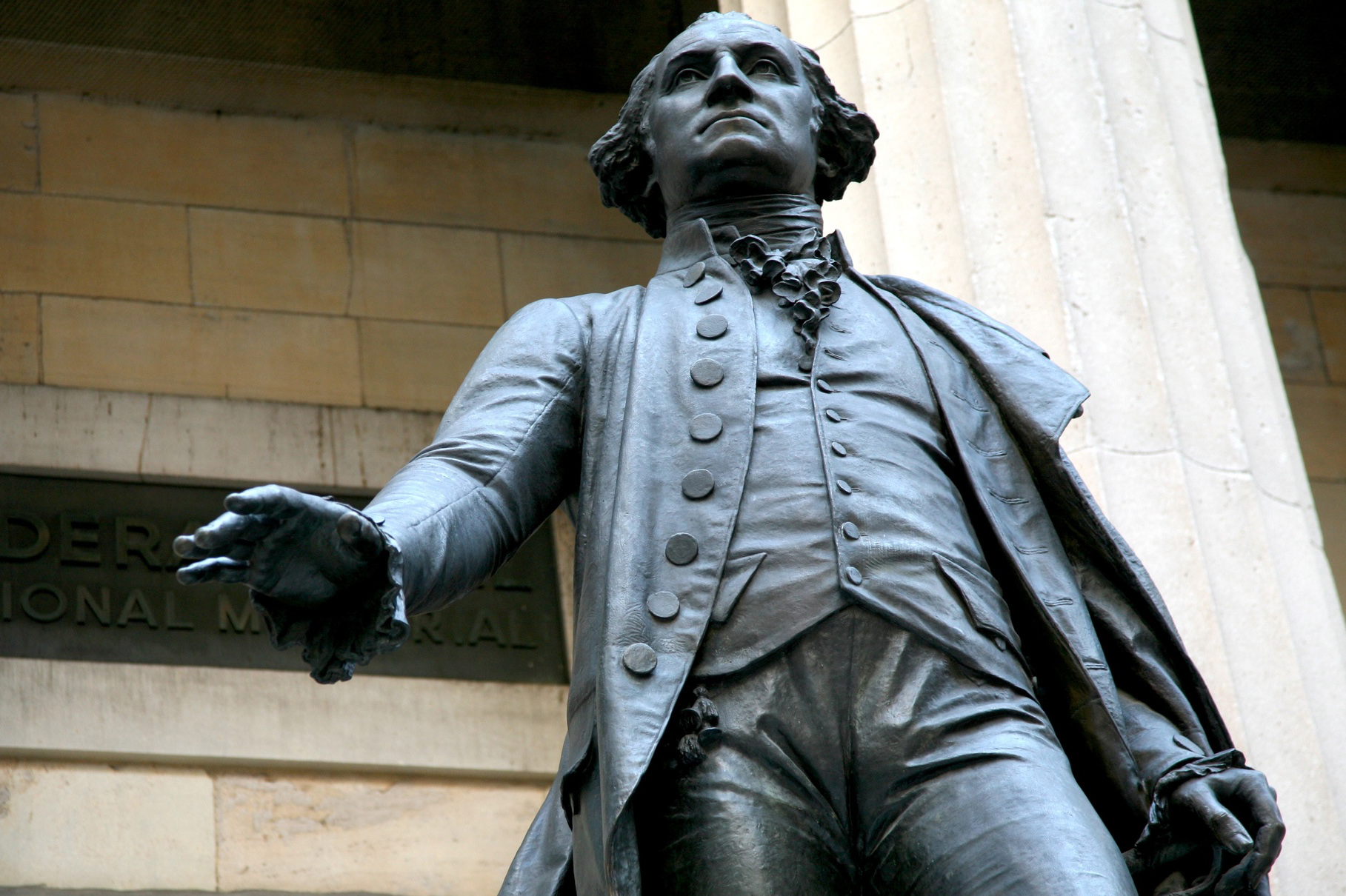George Washington’s Letter to the Hebrew Congregation
in Newport, Rhode Island
By Ned Hill, A One-Handed Economist, and Professor of Public Administration and City & Regional Planning at The Ohio State University’s John Glenn College of Public Affairs, powered by The MPI Group
On August 17, 1790, Moses Seixas, the Warden of Newport Rhode Island’s Synagogue Yeshuat Israel, read his letter of welcome to President George Washington:
Permit the children of the stock of Abraham to … join with our fellow citizens in welcoming you to Newport…
President Washington had two reasons for traveling to Newport. The professed reason was to recognize the state’s leaders for ratifying the Constitution. The second was more compelling. The President was seeking a way to publicly support what he and one of his traveling companions, Secretary of State Thomas Jefferson, viewed as the natural laws embodied in the amendments to the new Constitution, especially what became our First Amendment.
Newport attracted a variety of religious communities because of Rhode Island’s historic, but incomplete, acceptance of religious freedom. Rhode Island’s 1663 founding charter guaranteed freedom of religion as long as people behaved “themselves peaceably and quietly and not using this liberty to licentiousness and profaneness, not to the civil injury or outward disturbance of others.” At the time of Washington’s visit, members of Newport’s Jewish community could worship, own property, live where they wanted, conduct business, travel, and be part of civic life as demonstrated by Seixas being part of the welcoming party.
Voting and holding office were different matters, however.
Voting was restricted in post-Revolutionary America, with restrictions differing in each state. Typically, the franchise was limited to white males age 21 and older who either owned sufficient property or paid a minimum amount of taxes. Additionally, in 1790 seven of the thirteen states limited officeholders to male members of select Protestant denominations. Catholics were barred from voting in five states, and Jews in four. Pennsylvania restricted office-holding to Christians until its 1790 constitution opened it to all men who acknowledged the existence of God and a “future of rewards and punishments.”
While no state had an official religion, many supported select Protestant denominations, usually Anglican or Congregationalist — the sects of the elite — by using local taxes to support the salaries of favored ministers and meeting houses.
Support for the freedom of religion was not a sure bet during Washington’s first term, and it was likely no accident that Jefferson and U.S. Supreme Court Justice John Blair accompanied the President on a carriage ride from the capital, New York City, to Newport.
Jefferson wrote Virginia’s Statute for Religious Freedom in 1777, which embraced the separation of church and state, and freedom of conscience. The statute was a monumental work of political philosophy — but it did not become law because of the beauty of its logic, or its broad acceptance of the philosophy of the Enlightenment, or the embrace of natural law. It mostly became law because it followed a decade of lobbying by religious dissenters. Baptists, Presbyterians, Methodists, and others had complained vociferously about Virginia’s 1624 law requiring all white Virginians to worship in the Anglican church, and to support it through tax payments.
But back to Rhode Island.
Seixas’ statement of welcome contained an unabashed request for both religious liberty and the separation of church and state:
Deprived as we heretofore have been of the individual rights of free Citizens, we now … behold a Government, erected by the Majesty of the People — a Government, which to bigotry gives no sanction, to persecution no assistance — but generously affording to All liberty of conscience, and immunities of Citizenship: deeming every one, of whatever Nation, tongue, or language, equal parts of the great governmental Machine …
Washington expected his own official correspondence to be widely circulated, which gives particular weight to the letter he sent four days after leaving Newport to the Hebrew Congregations of Newport Rhode Island:
The citizens of the United States of America … All possess alike liberty of conscience and immunities of citizenship. …
It is now no more that toleration is spoken of as if it were the indulgence of one class of people that another enjoyed the exercise of their inherent natural rights, for, happily, the Government of the United States, which gives to bigotry no sanction, to persecution no assistance, requires only that they who live under its protection should demean themselves as good citizens in giving it on all occasions their effectual support. …
May the children of the stock of Abraham who dwell in this land continue to merit and enjoy the good will of the other inhabitants — while every one shall sit in safety under his own vine and fig tree and there shall be none to make him afraid.
Washington was unequivocal: In the United States of America, religious liberty was to be neither a matter of indulgence nor of tolerance. Religious liberty was not a discretion to be granted by an established order. Religious liberty was an “inherent natural right.”
Washington’s letter to the Hebrew Congregation in Newport Rhode Island was a statement of personal support from the first among the Founders for the First Amendment to the Constitution of the United States of America:
Congress shall make no law respecting an establishment of religion, or prohibiting the free exercise thereof; or abridging the freedom of speech, or of the press; or the right of the people peaceably to assemble, and to petition the Government for a redress of grievances.
Read Washington’s letter here.
See more of Ned’s work at his blog, A One-Handed Economist.
© 2018 A One-Handed Economist featuring Ned Hill is powered by The MPI Group

